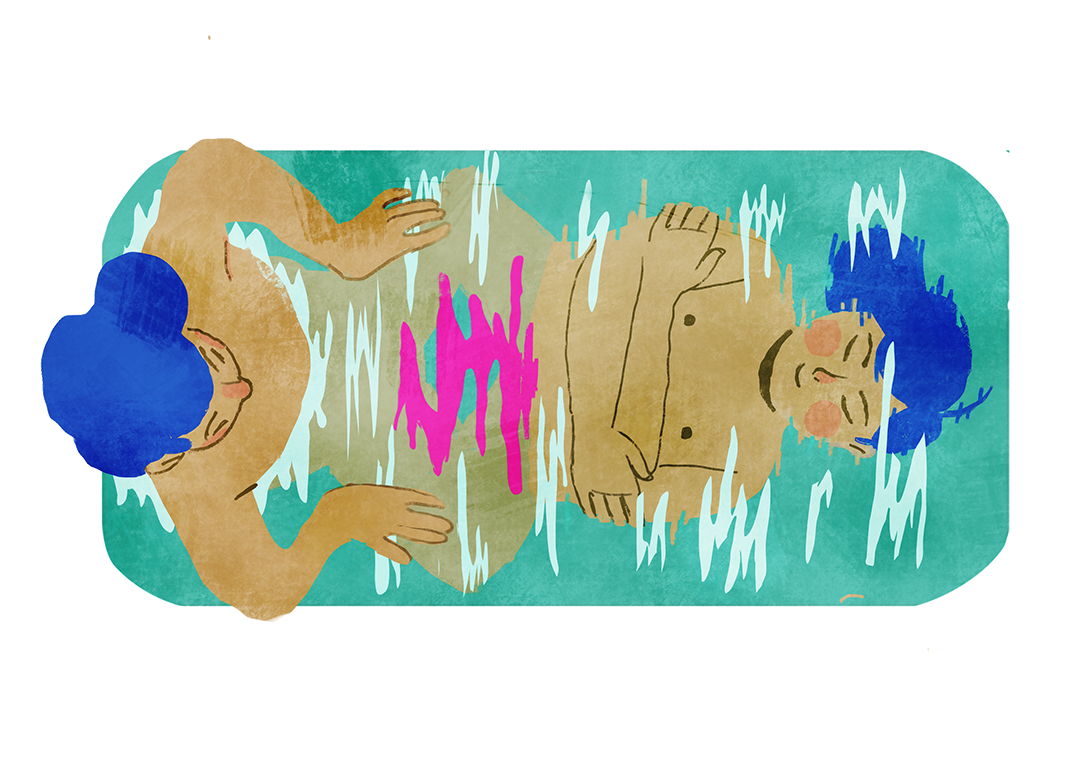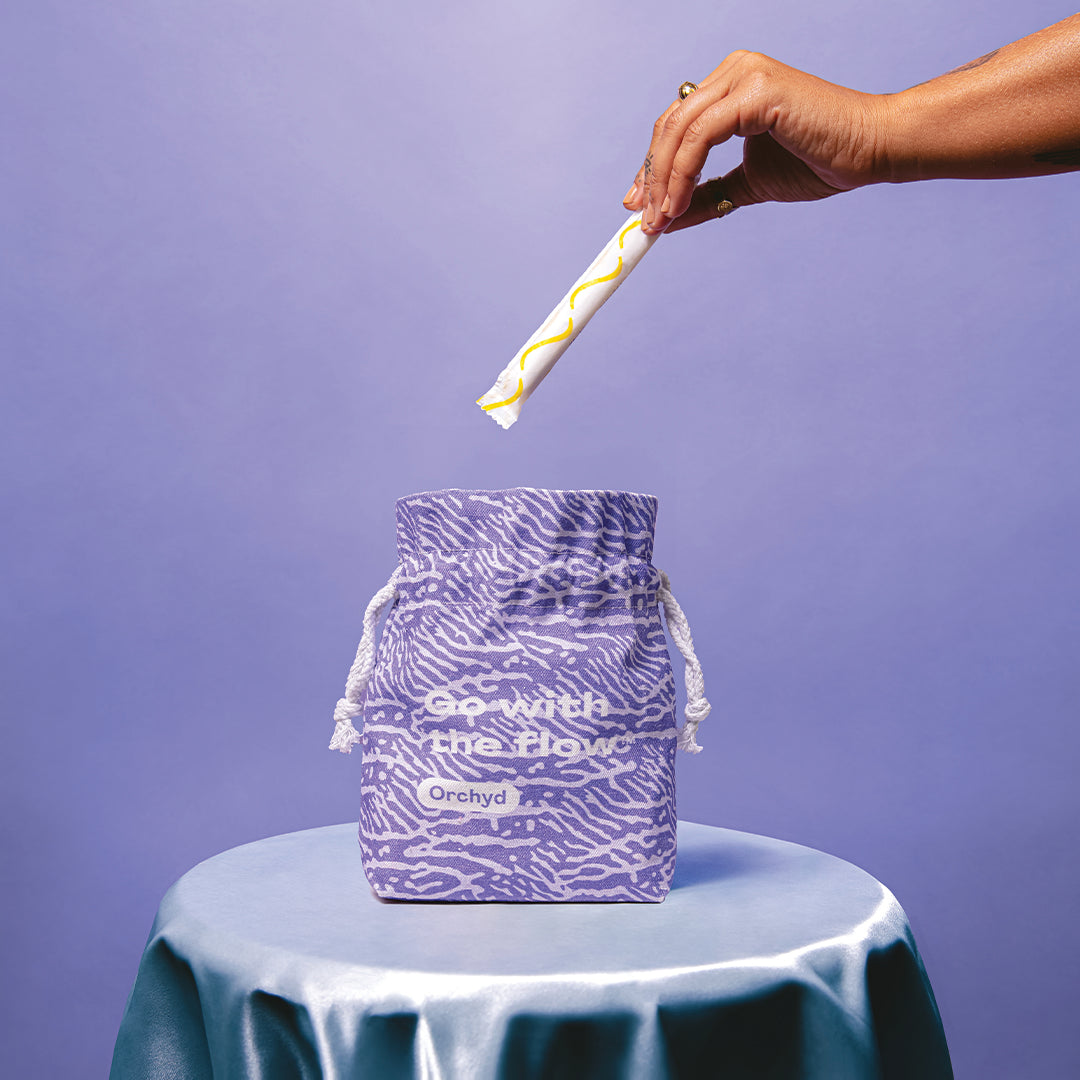
Gender Euphoria & Menstruation
Share
 Gender euphoria is a complicated term. It can mean so many different things and varies greatly from person to person. What gives you euphoria might be entirely different for someone else. It could be anything from getting a shorter haircut, wearing a binder, or even a packer to help you feel more at ease with your body.
Gender euphoria is a complicated term. It can mean so many different things and varies greatly from person to person. What gives you euphoria might be entirely different for someone else. It could be anything from getting a shorter haircut, wearing a binder, or even a packer to help you feel more at ease with your body.
These details in expression can feel like armor if you struggle to find a comfortable balance with your gender identity. Wearing these things or keeping up with certain rituals can help fend off dysphoric feelings that may crop up when you’re feeling vulnerable. A common time for dysphoria to rear its ugly head is during menstruation.
As someone who falls under the trans umbrella, it can be particularly daunting when that time of the month rolls around. Menstruation already affects the comfort and equilibrium of your body; when the voice in your head is telling you that this natural function doesn’t match up with your gender identity, it’s even worse. This experience can lead many of us to feel like our bodies are betraying us.
I’m not the first to struggle with maintaining gender euphoria during my period, and I know many people in my community feel the same. While not everyone may experience gender dysphoria or menstruation-related gender dysphoria, it is more common than discussed. So, what does it feel like, and how do we begin to navigate maintaining gender euphoria while menstruating?
Be Kind, Lead with Self-Care
I find I have to be exceedingly patient with myself when I am menstruating. I know that I will have all these thoughts telling me my body is wrong. To combat those thoughts, I make it my mission to be kinder to myself, especially when I sense a lack of control. Self-care can also come in the form of meditation, bubble baths, putting on a favorite movie, or grabbing a coffee and thrift shopping with your favorite people. Sometimes taking your mind off of what’s going on with your body and doing something you enjoy can stop you from obsessing over things you can’t immediately fix.
I asked several of my friends, who are also under the trans umbrella, how they take care of their periods. Many of them mentioned that they struggled with body image and shared that symptoms like chest tenderness or bloating leave them feeling further detached from their bodies and identities.
One of my friends mentioned they maintain their euphoria by dressing up in their favorite clothes. For some of us, resisting the urge to curl up in sweats and instead go all out on a look that gives us joy can do a lot to push away those negative thoughts and feelings. Quick tip, be sure that you’re careful about how long you wear your binder during your monthly cycle as it can worsen chest soreness if worn for prolonged periods.
Most importantly, don’t push yourself too hard during this time, and try to be kind to yourself and your body in any way you can. Your body is doing what it thinks it should, and while that can be challenging and troubling, beating yourself up over it isn’t going to fix the problem.
Reduce & Prepare for Symptoms
Sometimes the best way to stave off potentially dysphoric feelings is to reduce those annoying symptoms that often come with menstruation. I’ve always been told it’s a good idea to try and get ahead of your cramps by taking a painkiller before they actively start. Personally, cramps are one of the symptoms I’ve found trigger my dysphoria, so keeping myself on a consistent schedule with my pain medication and hydrating myself is one of the best ways to keep dysphoria at bay.
If you can’t get ahead of them, I recommend investing in a good-quality hot water bottle or heating pad. Applying heat in addition to taking pain medication is one of the most effective ways I’ve found to reduce my cramps quickly after they’ve started. My hot water bottle has become one of my greatest companions during my period. You can find them at most retailers online or in-person for an affordable price.
Sometimes when there’s nothing to be done to aid the pain or soothe the dysphoric thoughts, sleep is your best option. It will not only help recharge your body, but it can boost your mood and give you a reprieve from some of the discomforts.
I also highly recommend talking to your doctor. Certain types of birth control are known to help reduce symptoms and lessen the impact of your menstrual cycle. The IUD, for one, can often reduce period longevity, stave off PMS, or even eradicate your period. Many trans and nonbinary folx opt for this as it is the closest they can get to lightening or stopping their period.
You should always discuss your options with your doctor and see if they recommend anything that could help reduce symptoms and combat your dysphoria at the same time.
Talk To Someone
When I’m not feeling my best, I’ve found that I feel better when I vent to the people I trust. My partner, friends, and therapist have all been there to listen to my rants, tears, and frustrations. While it doesn’t always solve the problem, it does help to verbalize my feelings and have them heard.
Having someone validate your feelings or reassure you can give you the perspective that you might be missing.
If the items that give you gender euphoria are equivalent to armor, your support system is like your backup. They may not help you fully slay those monstrous feelings, but they can certainly help keep them at bay.
Not everyone has access to therapy resources, but if you do, finding an LGBTQIA+ friendly therapist can help as well. These therapists are specifically trained and have experience helping queer, trans, and nonbinary folx navigate their feelings about their identities. Your dysphoric feelings while menstruating may stem from something underlying that you’re not able to address or see quite yet, and a licensed therapist can help you dig into those feelings.
But if you don’t have that kind of access, the people close to you, friends, family, and even other members of your community, are great resources to reduce dysphoric feelings during your period.
Seek Community, Ask For Advice
This goes hand in hand with talking to someone, but the internet is an amazing resource to connect with all sorts of people who may have shared experiences. There are community forums, chat rooms, and resources that you can access to navigate menstrual dysphoria. Those who are going through the same thing can offer invaluable advice on reducing those feelings. It can lead you to certain products, techniques, or rituals that you may not have thought of or tried. And, even if their advice doesn’t necessarily hit home, having a shared experience with other individuals can at least help you feel less alone.
Listen To Your Body & Adjust
If you’re feeling dysphoria related to the period products you’re using, don’t be afraid to try other options. While some trans and nonbinary folx prefer to use tampons or cups, others may not find them comfortable. You might find you prefer pads because they feel less invasive or period underwear because you don’t have to handle the cleanup besides throwing them in the washing machine. Track your body and what it might be telling you, and put your comfort first.
Keep Your Head Up
I know that time of the month can feel like the end of the world, with your body and mind working against you. Know that your feelings are entirely valid.
If you feel like you may be struggling too much, you are not alone. There are so many resources you can access to help make this time a little easier to manage.
Dysphoria can be tricky, but don’t let it get the best of you. Take care of yourself. Treat yourself with love, respect, care, and patience. And, most of all, don’t give up.
You’re seen, and you are loved, regardless of how you feel in the moment.

